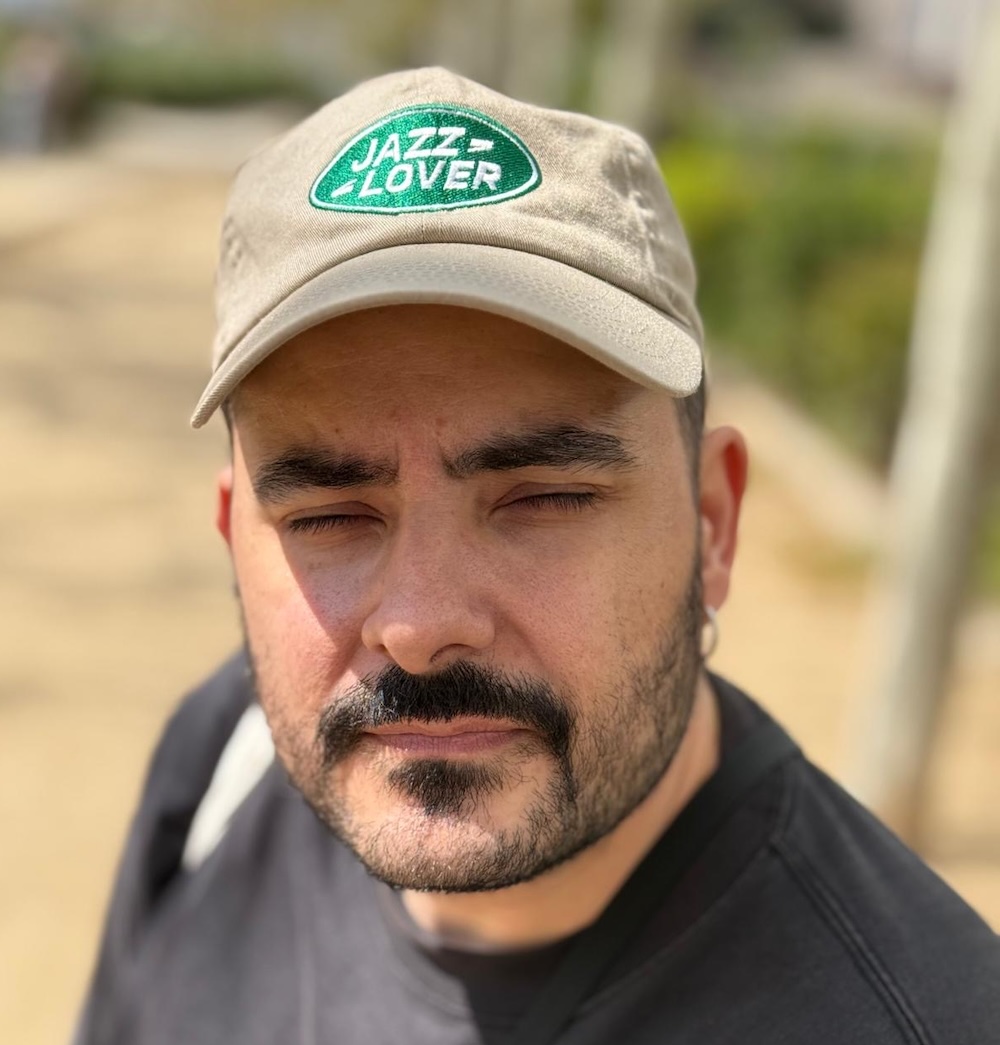Search
To search for an exact match, type the word or phrase you want in quotation marks.
A*DESK has been offering since 2002 contents about criticism and contemporary art. A*DESK has become consolidated thanks to all those who have believed in the project, all those who have followed us, debating, participating and collaborating. Many people have collaborated with A*DESK, and continue to do so. Their efforts, knowledge and belief in the project are what make it grow internationally. At A*DESK we have also generated work for over one hundred professionals in culture, from small collaborations with reviews and classes, to more prolonged and intense collaborations.
At A*DESK we believe in the need for free and universal access to culture and knowledge. We want to carry on being independent, remaining open to more ideas and opinions. If you believe in A*DESK, we need your backing to be able to continue. You can now participate in the project by supporting it. You can choose how much you want to contribute to the project.
You can decide how much you want to bring to the project.

There are social media users who dedicate themselves to leaving an unwanted tag on other people’s comment threads by adding the post BROzempic. They represent a kind of “passive-aggressive scumbag” that seeks to indicate to other users that the content creator “must have used Ozempic” to “adjust their physical condition.” In the end, what they are doing is indicating that the person “has cheated.” This particular “hunt” for the “Bro who took Ozempic” symbolizes something much more influential than a simple pharmaceutical breakthrough.
We grew up thinking that to diet was an act of sacrifice while these “bros” have achieved their desired body without the torture it entails. They have edited their bodies without subjecting them to their will. Born as a treatment for type 2 diabetes, the drug Ozempic (technical name semaglutide, Novo Nordisk) quickly became the symbol of this unprecedented possibility. In recent years, social media has celebrated it as a silent miracle and a highly sought-after legal drug, but also as a clear symptom of a new aesthetic purge.
The drug cures absolutely nothing, it merely adjusts and promises control over what we’ve always sought, namely, health. It transcends medicine to become a collective moral insult, how we tell the world that, if we want to, we can govern ourselves. There are many ways to see it, of course, and where some see a simple definitive bypass so that the culture of thinness can reign again, I see a logic of neutralization and absolute control injected into the fat cells of half the world. I’m not sure that people who turn to Ozempic are simply thinking about “looking good.” Perhaps what they really want is to never be hungry again. Do they want to punish themselves without that pleasure or are they hiding desires like not aging and/or not dying?
The world of pharmacological “self-control” has more extreme and well-known versions, such as the Don’t Die aesthetic, a blend of techno-libertarianism, biohacking, and scientific superstition embodied by the American Bryan Johnson. His longevity project is often interpreted as a “defiance of death,” but what he actually seeks is even colder, that is, to externalize aging and turning it into a software glitch that the user may, for one reason or another, be allowing. Disguised as a discourse of extreme well-being, this rhetoric seeks to turn mortality itself into negligence. The point is to never stop optimizing.
Along with Johnson, a generation of men has turned physical-temporal discipline and chemical optimization into their new identity. Electrolyte powders, faces immersed in bowls of ice, banana peels scrapped before bed, and a grueling daily choreography designed for the discontinuation of TikTok or reels. The influencer Ashton Hall, with his 3:52 a.m. wake-ups, ice-cold showers, his display of supplements as relics, and dishes of red meat as a reward for his efforts, doesn’t just represent a new kind of lifestyle. Hall’s body, far from communicating well-being, communicates obedience. Almost always assisted by a maid who brings him everything he needs so he doesn’t have to waste a single second, this kind of laboratory-made masculinity demonstrates its strength by perfecting self-monitoring.
Domination? Screw it! OPTIMIZATION.
It’s as if the old Protestant work ethic as a sign of virtue had mutated into pure physiology. What was once effort is now called seeking redemption through metabolic regulation, and the new sin is having an inflamed body. Sleeping less, just enough to function, eating better, suppressing anxiety, and training every day is like a centuries-old collection of micro-habits in which work hours are replaced by digital biomarkers. For these types of people, the body has taken over the task that previously resided in the soul. Being free, for these bros, means keeping things under control.
This high-energy bodily morality is capable of turning a vice as widespread as smoking into pure discipline. Zyn, already associated as another symbol of masculine identity, confirms that the contemporary ideal seeks to dose more than enjoy. The brand has become popular thanks to its tobacco-free nicotine pouches. They say it clearly: “For those who want to experience the effects of nicotine without smoking.” Entrepreneurs and productivity freaks take it because they’re actually dosing industrial dopamine that reflects what we’re talking about, that is, stimulation without excess, addictions that don’t generate guilt. Pleasure can still exist but it must in no way interfere with our schedule.
At the opposite end of this obsessive self-management capable of colonizing vices is its grotesque reverse, the spectacle of live self-destruction. Simón Pérez and Silvia Charro, former mortgage advisors turned streamers (first on YouTube, then on Twitch, and now on KICK), have turned their physical deterioration into a form of content. They smoke crack in front of the camera, insult each other, attack each other, and collapse amidst the applause and donations of an audience that encourages them to continue. They’ve even gone so far as to ask their audience for weapons, just in case they might need them. This narrative, however, is precisely what bros would condemn, that is, deterioration. Where some suppress hunger, others exhibit it. Where some seek hygienic immortality, others go for accelerated decomposition. The fear, however, is the same, the fear of “disappearing,” “dying alone” without leaving a trace in a culture that only recognizes what is on screen.
Contemporary bros preach well-being instead of ideology. Their political horizon lies in the before and after. Beliefs? They prefer protocols, optimization and more optimization. If you think about it, it’s pure populism. Their revolution has a single premise which is repeated daily, namely, lower your level of cortisol. It is a terrain of absolute political disconnection that builds its identity based on brands and routines to achieve dopaminergic stability. Motivational podcasts, habit trackers, and hormone-hacking tips function like short prayers for individuals who don’t trust anything they can’t measure.
The time has come to call it what it is, collective infantilization. The contemporary fear of death, of aging, of losing control, ends up generating a cultural regression toward dependency instead of promoting rational survival. It’s the same drive that characterizes childhood, namely, the need for an external agent (parent, institution, technology, drug) to guarantee continuity, security, and protection. At its core, the obsession with controlling every variable in your body is no different from the childhood impulse to ask for permission to exist. 21st-century adults don’t expect salvation by the State or religion, they expect salvation to materialize by working on their own metabolism.
Any act that doesn’t promote improvement or progress is considered a form of abandonment, including resting, meditating, training, or investing in oneself, and contemporary sins are atoned for with subscriptions, sensors, wearable glucose apps, and check-ins. BROzempic culture has achieved what centuries of religious morality failed to achieve, that is, to eliminate hunger without satiating it. A body without appetite is the great fulfilled dream of emotional capitalism. People don’t want pleasure, they need stability. Human beings are reduced to a curve that must not deviate. Living well has become the art of not feeling too much.
Ozempic, Zyn, supplements, metrics, and routines are merely manifestations of the same anxiety, that of eliminating uncertainty. The perfect body of the present is not strong and beautiful, but completely predictable. Everything that ages or fluctuates only needs correcting. We have domesticated hunger, but also desire, pain, surrender, and surprise. Perhaps that’s why this era clings so tightly to the idea of longevity, because we deeply fear passing away and, at the same time, the possibility that life could overwhelm us once again.

Frankie Pizá (Palma de Mallorca, 1984) is a cultural critic, educator, and founder of FRANKA™️, an independent media that analyzes the intersection of arts, technology, and culture. His work centers on a simple and unusual idea: “protecting the context” in a time of increasing disinformation, creative precariousness, and algorithmic noise. He has worked on landmark projects such as Primavera Sound, Red Bull Music Academy, and Concepto Radio, and has collaborated with various media and cultural platforms. In recent years, he has established himself as one of the most unique voices in the Spanish language when it comes to interpreting phenomena. His essays balance cultural criticism and contemporary theory and seek to explain what is happening in real time, using critical and accessible language.
"A desk is a dangerous place from which to watch the world" (John Le Carré)